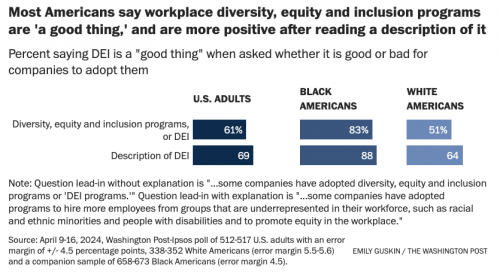I have never witnessed so much deflection, evasion, and dishonesty…and I’ve debated creationists. I had to run to the bathroom twice during this video!*
I was surprised to see his line of criticism of Kamala Harris was to accuse her of not actually being black. That degree of racism was…novel? It’ll be interesting to see how that works for him in a debate.
*Admittedly, there were other circumstances.









